
We have a great team that works hard to make our research happen. With a combination of principal investigators, clinical team members, graduate students, undergraduate students, and a research coordinator, the COAST Lab provides ample opportunities to develop research skills and work on different projects.
Principal Investigator
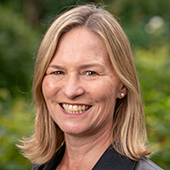 Emma Adam is a developmental psychologist with an interest in applying theory and research on human development to informing policies and programs aimed at improving the wellbeing of children, adolescents and young adults. She is an expert in the developmental psychobiology of stress and sleep. Adam studies the contributions of work, school, family and individual factors to physiological stress in adolescents and young adults and the implications of stress for child and adolescent behavioral, cognitive and emotional development. She also examines social influences on sleep in children and adolescents, and the implications of variations in sleep timing and quality for health and performance. Her current research projects examine the role of stress, stress hormones and sleep in the development of mood and anxiety disorders in adolescents and young adults; racial/ethnic disparities in stress and the impact of perceived discrimination on stress hormones, sleep and health; the impact of early adverse relationship experiences on biological stress and health in young adults; and how variations in stress and sleep affect the executive functioning and academic performance of Chicago Public Schools students.
Emma Adam is a developmental psychologist with an interest in applying theory and research on human development to informing policies and programs aimed at improving the wellbeing of children, adolescents and young adults. She is an expert in the developmental psychobiology of stress and sleep. Adam studies the contributions of work, school, family and individual factors to physiological stress in adolescents and young adults and the implications of stress for child and adolescent behavioral, cognitive and emotional development. She also examines social influences on sleep in children and adolescents, and the implications of variations in sleep timing and quality for health and performance. Her current research projects examine the role of stress, stress hormones and sleep in the development of mood and anxiety disorders in adolescents and young adults; racial/ethnic disparities in stress and the impact of perceived discrimination on stress hormones, sleep and health; the impact of early adverse relationship experiences on biological stress and health in young adults; and how variations in stress and sleep affect the executive functioning and academic performance of Chicago Public Schools students.In addition to her Northwestern University affiliations, she is a member of the American Psychological Association, the Society for Research in Child Development, the Society for Research on Adolescence, and the International Society of Psychoneuroendocrinology. She is the recipient of a National Academy of Education/Spencer Foundation Post-doctoral Fellowship (2003–04), a William T. Grant Scholars Award (2004–09), and most recently the prestigious Curt Richter Award from the International Society of Psychoneuroendocrinology (2013).
Research Staff
Rocky Myers (Lab Manager)
 Rocky (they/them) graduated from Knox College with a B.A. in Ancient Mediterranean Studies, with a specialization in Latin, and minors in Education and Sociolinguistics. They joined Northwestern staff in 2023 and transitioned to full-time Lab Manager for COAST in summer 2024. Their academic interests revolve around institutional and cultural manifestation of biases, how perception impacts interpersonal interaction, and justice within education. Outside of the lab, Rocky partakes in local bouldering competitions, bicycle advocacy, running, knitting, crocheting, and spending time with their dog and partner. As a Chicago native and dual citizen, they love to explore the city and traveling around the world.
Rocky (they/them) graduated from Knox College with a B.A. in Ancient Mediterranean Studies, with a specialization in Latin, and minors in Education and Sociolinguistics. They joined Northwestern staff in 2023 and transitioned to full-time Lab Manager for COAST in summer 2024. Their academic interests revolve around institutional and cultural manifestation of biases, how perception impacts interpersonal interaction, and justice within education. Outside of the lab, Rocky partakes in local bouldering competitions, bicycle advocacy, running, knitting, crocheting, and spending time with their dog and partner. As a Chicago native and dual citizen, they love to explore the city and traveling around the world.
Postdoctoral Fellows
Sarah Collier
 Sarah Collier is a postdoctoral fellow who graduated from Northwestern’s Human Development and Social Policy program. Her research interests include stress biology, poverty policy, and the evaluation of related interventions and programs. In the COAST lab, she oversees the collection of cortisol data for the Quiet Time study. She has a bachelor’s degree in Psychology and a master’s degree in Applied Developmental and Educational Psychology, both from Boston College. Prior to Northwestern, Sarah worked in workforce development and the community college system in San Diego, CA.
Sarah Collier is a postdoctoral fellow who graduated from Northwestern’s Human Development and Social Policy program. Her research interests include stress biology, poverty policy, and the evaluation of related interventions and programs. In the COAST lab, she oversees the collection of cortisol data for the Quiet Time study. She has a bachelor’s degree in Psychology and a master’s degree in Applied Developmental and Educational Psychology, both from Boston College. Prior to Northwestern, Sarah worked in workforce development and the community college system in San Diego, CA.
Keira Leneman
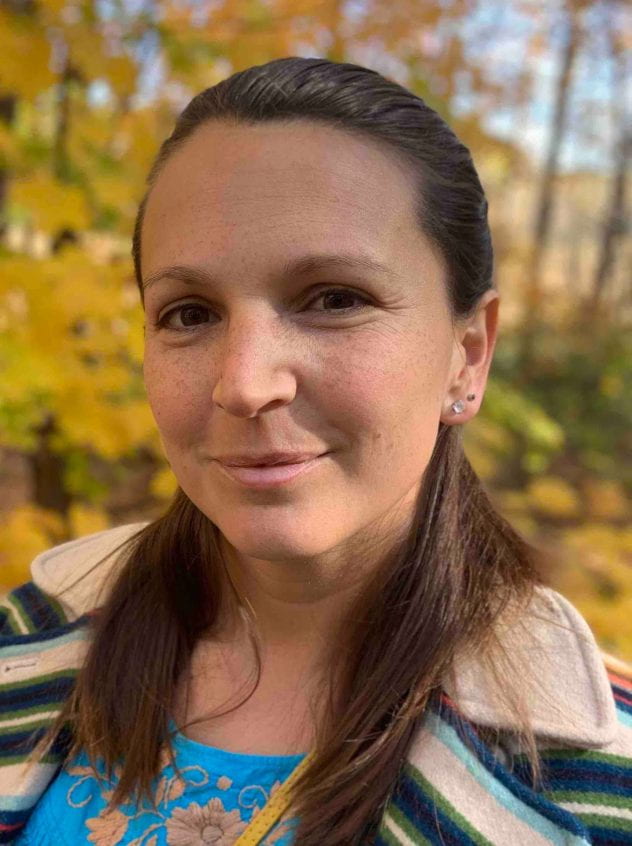 Keira Leneman, Ph.D. (she/her) is a post-doctoral scholar in the COAST lab and Visiting Assistant Professor at Macalester College. Her research interests surround stress, psychophysiology, self-regulation, and how these intersect with Whiteness and systemic racism. Specifically, she is focused on understanding how stress, physiological reactivity, and regulation are shaped by racial socialization and racial identity. Additionally, Keira is passionate about integrating community engagement and diversity science principles into her research and teaching. Her dissertation work investigated physiological stress responses of White, liberal emerging adults while talking about race and privilege. Long term goals surround better understanding predictors and barriers of anti-racism and White Fragility in order to foster anti-racism development across the lifespan.
Keira Leneman, Ph.D. (she/her) is a post-doctoral scholar in the COAST lab and Visiting Assistant Professor at Macalester College. Her research interests surround stress, psychophysiology, self-regulation, and how these intersect with Whiteness and systemic racism. Specifically, she is focused on understanding how stress, physiological reactivity, and regulation are shaped by racial socialization and racial identity. Additionally, Keira is passionate about integrating community engagement and diversity science principles into her research and teaching. Her dissertation work investigated physiological stress responses of White, liberal emerging adults while talking about race and privilege. Long term goals surround better understanding predictors and barriers of anti-racism and White Fragility in order to foster anti-racism development across the lifespan.
Undergraduate Team Members
Caroline Daniels
 Caroline is a junior at Northwestern University, majoring in Biology and Psychology. A Wisconsin native and true Midwesterner at heart, she chose Northwestern for its strong academic and research programs and her love for the Midwest. Passionate about health inequality, she explores how social, environmental, and financial stressors affect physical and mental health. Caroline serves on the executive board of Project MED, an organization dedicated to educating and mentoring high school students from underserved communities for careers in healthcare. She also works as a Biology lab teaching assistant and volunteers as an English tutor for refugees in the inner city. In her free time, she enjoys long walks, hosting girls’ nights, and spending time outdoors with family.
Caroline is a junior at Northwestern University, majoring in Biology and Psychology. A Wisconsin native and true Midwesterner at heart, she chose Northwestern for its strong academic and research programs and her love for the Midwest. Passionate about health inequality, she explores how social, environmental, and financial stressors affect physical and mental health. Caroline serves on the executive board of Project MED, an organization dedicated to educating and mentoring high school students from underserved communities for careers in healthcare. She also works as a Biology lab teaching assistant and volunteers as an English tutor for refugees in the inner city. In her free time, she enjoys long walks, hosting girls’ nights, and spending time outdoors with family.
Sahil Desai
Sahil Desai is a Human Development in Context and Biological Science major. His research interests include health psychology, social justice, identity development, and stress. He is especially interested in how social identities shape health and developmental outcomes. With his free time, he likes to play the piano, wander the city, and binge early 2000s television.
Courtney Kim

Courtney (she/her) is a junior at Northwestern University, majoring in Psychology with minors in Business and Data Science. She is passionate about understanding and addressing various forms of social injustice; her work in the COAST Lab focuses on how racial discrimination impacts mental and physical health in adolescents. She is also interested in examining how social networks or support systems help mediate the impact of discriminatory stressors in everyday life. In the future, she hopes to pursue graduate studies in clinical psychology and offer culturally relevant mental health care for underserved populations. At the moment though, you’ll probably catch her taking long walks along the lake or cooking up a home-made meal for her friends.
Former Undergraduate Team Members
Affiliated Members
Rachael Ellison (Illinois Institute of Technology)
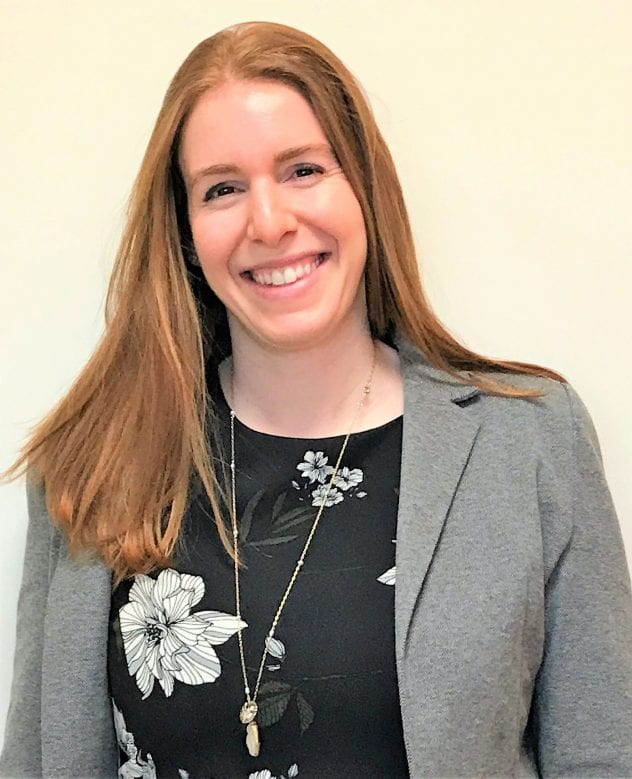 Dr. Rachael Ellison is an Assistant Professor of Psychology as well as Associate DCT and Practicum Coordinator at Illinois Institute of Technology. She is a Clinical Neuropsychologist with specialized training in traumatic brain injury, dementia, ADHD, intersecting identities, systemic injustice, and PTSD, and conducts neuropsychological evaluations and cognitive rehabilitation. She completed her clinical internship through the UCSD and VA San Diego Healthcare System with specialized rotations in neuropsychology, TBI, cognitive rehabilitation, and PTSD, and post-doctoral fellowship in clinical neuropsychology through Edward Hines Jr. VA Hospital, while also engaging in post-doctoral research at Northwestern University throughout her fellowship.
Dr. Rachael Ellison is an Assistant Professor of Psychology as well as Associate DCT and Practicum Coordinator at Illinois Institute of Technology. She is a Clinical Neuropsychologist with specialized training in traumatic brain injury, dementia, ADHD, intersecting identities, systemic injustice, and PTSD, and conducts neuropsychological evaluations and cognitive rehabilitation. She completed her clinical internship through the UCSD and VA San Diego Healthcare System with specialized rotations in neuropsychology, TBI, cognitive rehabilitation, and PTSD, and post-doctoral fellowship in clinical neuropsychology through Edward Hines Jr. VA Hospital, while also engaging in post-doctoral research at Northwestern University throughout her fellowship.
Her doctoral degree in Clinical and Community Psychology from DePaul University focused on reducing systemic injustice and improving the lives of marginalized individuals and groups through research on racial privilege, increasing openness to diversity and cultural competence, engaging individuals and groups from privileged backgrounds in social justice work. Dr. Ellison graduated from Northwestern University’s School of Education and Social Policy. Her current research merges her background and interest in social justice and community through her Socially Conscious Lab. She is also serving a six-year term as the Chair for the Division 40 Women in Neuropsychology (WIN) Committee, and speaks regularly at national conferences and other training events.
Jacquelyn Stephens

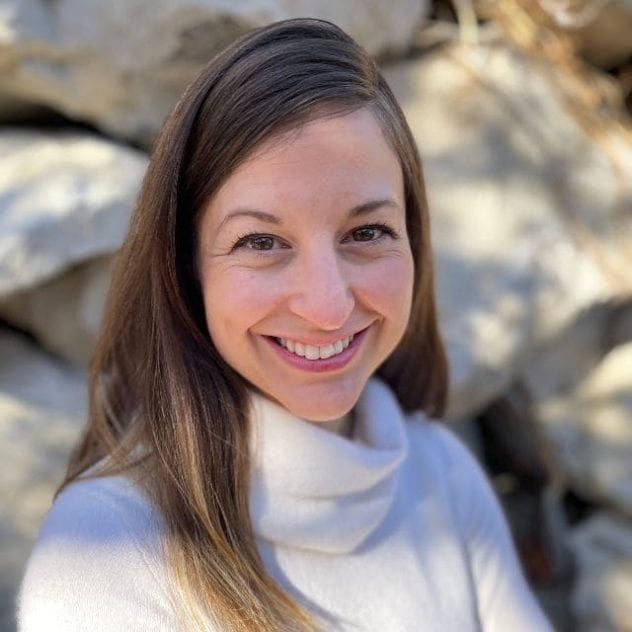 Dr. Koning’s background is in population health, sociology and policy research. Her focus areas are biopsychosocial determinants of maternal and child health; structural violence and social stress; and the health implications of migration and displacement. She has led or co-led multiple data collection projects using survey, interview and ethnographic methods, and uses quantitative analytical techniques from biostatistical, epidemiological and quasi-experimental study designs. Her work spans local, global and international border contexts including Northern Nevada, North America and Southeast Asia.
Dr. Koning’s background is in population health, sociology and policy research. Her focus areas are biopsychosocial determinants of maternal and child health; structural violence and social stress; and the health implications of migration and displacement. She has led or co-led multiple data collection projects using survey, interview and ethnographic methods, and uses quantitative analytical techniques from biostatistical, epidemiological and quasi-experimental study designs. Her work spans local, global and international border contexts including Northern Nevada, North America and Southeast Asia.
Interpersonal violence affects 1 in 3 women and nearly half of children globally. Additionally, organized violence forcibly displaces over 1% of the world’s population yearly. Each type of violence operates within broader systems of inequality—structural violence. Yet despite wide recognition of its harm, how violence operates within and across global contexts to get “under the skin” in ways affecting biology, behavior and health over the life course remains poorly understood and poorly addressed. To confront this, she studies how violence and stress are socially patterned and underlie health inequities through biopsychosocial pathways over the individual life course and across generations. With the aim of promoting social justice and human rights as critical aspects of public health, she partners with communities, women’s groups, government agencies and the United Nations to conduct collaborative research that informs public policy and health practice.
Shanting Chen (University of Florida)
 Dr. Shanting Chen (she/her/hers) is an Assistant Professor of Psychology at the University of Florida. She received her Ph.D. in Human Development and Family Sciences from the University of Texas at Austin and a B.A. in Psychology from the University of Minnesota-Twin Cities. Her research interests have broadly centered on the intersection of stress, family, and cultural contexts in understanding the development of ethnic/racial minoritized adolescents. Specifically, she explores the social-cultural and physiological mechanisms (e.g., Hypothalamic-Pituitary-Adrenal axis, allostatic load) of the effects of stress (e.g., perceived discrimination) on ethnic minority adolescents’ well-being. In addition, she takes a strength- (rather than risk-) based approach to explore the adaptive and protective factors (e.g., parental/peer cultural socialization, psychological resilience) that promote ethnic minority adolescents’ academic outcomes and psycho-social and physical development. Her research is theoretically driven by ecological theory, the integrative model of minority child development, and the biopsychosocial model of health.
Dr. Shanting Chen (she/her/hers) is an Assistant Professor of Psychology at the University of Florida. She received her Ph.D. in Human Development and Family Sciences from the University of Texas at Austin and a B.A. in Psychology from the University of Minnesota-Twin Cities. Her research interests have broadly centered on the intersection of stress, family, and cultural contexts in understanding the development of ethnic/racial minoritized adolescents. Specifically, she explores the social-cultural and physiological mechanisms (e.g., Hypothalamic-Pituitary-Adrenal axis, allostatic load) of the effects of stress (e.g., perceived discrimination) on ethnic minority adolescents’ well-being. In addition, she takes a strength- (rather than risk-) based approach to explore the adaptive and protective factors (e.g., parental/peer cultural socialization, psychological resilience) that promote ethnic minority adolescents’ academic outcomes and psycho-social and physical development. Her research is theoretically driven by ecological theory, the integrative model of minority child development, and the biopsychosocial model of health.
Tierney McMahon
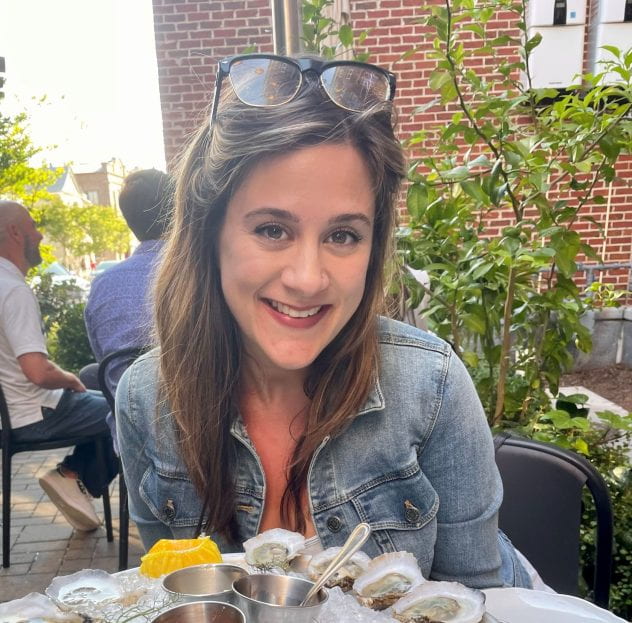 Dr. Tierney McMahon received her PhD in Clinical Psychology from the University at Buffalo in 2021 and completed her predoctoral clinical internship at the Charleston Consortium Psychology Internship Program. She joined the COAST Lab in May 2022 after beginning a postdoctoral fellowship in the Institute of Developmental Sciences at Northwestern University and is working with Dr. Adam on the Youth Mindful Awareness Program project. Dr. McMahon’s research focuses on understanding the development of emotion regulation processes and risk for emotional disorders. She is particularly interested in understanding how contexts (e.g., stress, parenting, peers) shape the neurodevelopmental underpinnings of emotion and emotion regulation behaviors, and how mindfulness-based treatments can disrupt maladaptive patterns in emotion regulation to prevent the onset of emotional disorders.
Dr. Tierney McMahon received her PhD in Clinical Psychology from the University at Buffalo in 2021 and completed her predoctoral clinical internship at the Charleston Consortium Psychology Internship Program. She joined the COAST Lab in May 2022 after beginning a postdoctoral fellowship in the Institute of Developmental Sciences at Northwestern University and is working with Dr. Adam on the Youth Mindful Awareness Program project. Dr. McMahon’s research focuses on understanding the development of emotion regulation processes and risk for emotional disorders. She is particularly interested in understanding how contexts (e.g., stress, parenting, peers) shape the neurodevelopmental underpinnings of emotion and emotion regulation behaviors, and how mindfulness-based treatments can disrupt maladaptive patterns in emotion regulation to prevent the onset of emotional disorders.
Aubrey Russak-Pribble (ISPNE)
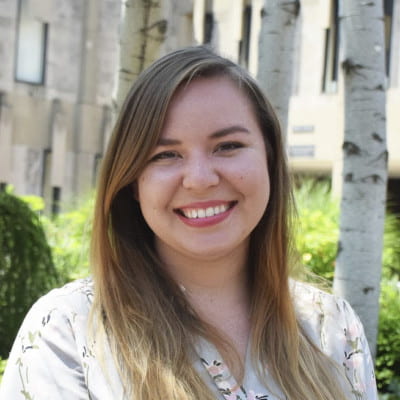 Aubrey graduated from Centre College in 2016 with a B.S. in behavioral neuroscience and a minor in psychology. In addition to her time in the lab, she completed her master’s degree in Public Policy and Administration with a specialization in Global Health at Northwestern. Originally from St. Pete, Florida, she joined the COAST lab in October 2018 and is now serving as the Project Coordinator for the BIO Study. She is interested in the impacts of chronic and acute stress on physical health, mental health, and negative life outcomes. She is particularly interested in interventions that reduce the effects of compounded inequities in health and life outcomes due to factors like poverty, race, gender, and mental illness. Previously, she examined these issues by working as a with incarcerated individuals and adolescent girls in residential settings in Kentucky. In her free time, she likes to explore the city, cook new foods, and snuggle up with a book and her cats.
Aubrey graduated from Centre College in 2016 with a B.S. in behavioral neuroscience and a minor in psychology. In addition to her time in the lab, she completed her master’s degree in Public Policy and Administration with a specialization in Global Health at Northwestern. Originally from St. Pete, Florida, she joined the COAST lab in October 2018 and is now serving as the Project Coordinator for the BIO Study. She is interested in the impacts of chronic and acute stress on physical health, mental health, and negative life outcomes. She is particularly interested in interventions that reduce the effects of compounded inequities in health and life outcomes due to factors like poverty, race, gender, and mental illness. Previously, she examined these issues by working as a with incarcerated individuals and adolescent girls in residential settings in Kentucky. In her free time, she likes to explore the city, cook new foods, and snuggle up with a book and her cats.
Julia Shalansky
 Julia graduated from Northwestern University in 2023 with a B.S. in Human Development and Global Health. After graduation, she completed intensive biology coursework through Northwestern’s SPS Pre-Medicine Completion Program. Throughout her academic career, Julia focused on analyzing how biopsychosocial and institutional factors contribute to health equity and on developing applicable healthcare systems solutions. Julia joined the COAST Lab as an undergraduate research assistant in January 2022, as she contributed to projects aimed at improving adolescent well-being. She conducted data analysis, coordinated research activities, and collaborated with team members on various studies. Now serving as the Lab Manager, she oversees daily operations, mentors new research assistants, and ensures the successful execution of research projects. Julia is passionate about health equity and social well-being and aims to apply her knowledge to the healthcare systems space.
Julia graduated from Northwestern University in 2023 with a B.S. in Human Development and Global Health. After graduation, she completed intensive biology coursework through Northwestern’s SPS Pre-Medicine Completion Program. Throughout her academic career, Julia focused on analyzing how biopsychosocial and institutional factors contribute to health equity and on developing applicable healthcare systems solutions. Julia joined the COAST Lab as an undergraduate research assistant in January 2022, as she contributed to projects aimed at improving adolescent well-being. She conducted data analysis, coordinated research activities, and collaborated with team members on various studies. Now serving as the Lab Manager, she oversees daily operations, mentors new research assistants, and ensures the successful execution of research projects. Julia is passionate about health equity and social well-being and aims to apply her knowledge to the healthcare systems space.